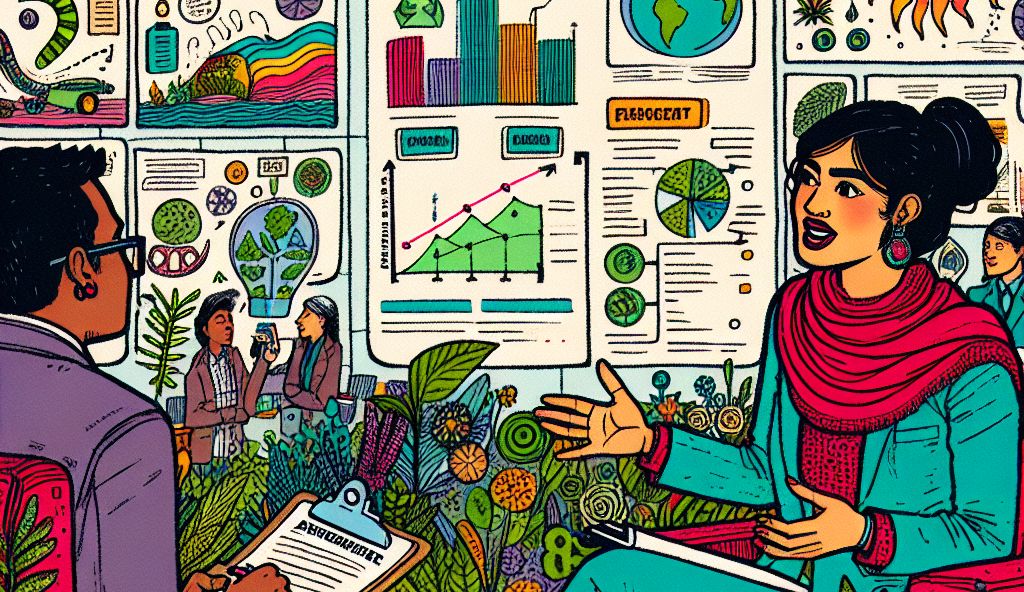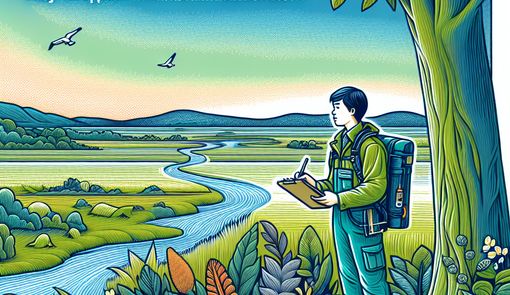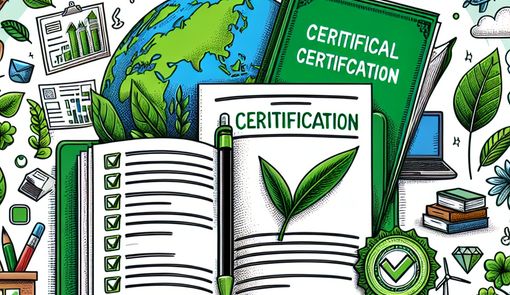Ace Your Interview: Top Tips for Aspiring Environmental Assessors

Interviews can be daunting for anyone, regardless of the field or level of experience. But for those aspiring to become environmental assessors, interviews are an opportunity to showcase not just technical knowledge and experience, but also a commitment to sustainability and an understanding of an ever-evolving regulatory landscape. In this article, we offer a deep dive into top interview tips specifically tailored for environmental assessor job applicants who are eager to make an impact.
Understand the Role of an Environmental Assessor
Before walking into the interview room, it's imperative to have a clear understanding of what an environmental assessor does. Typically, this role involves evaluating environmental risks associated with land use planning, construction, and other projects. This includes assessing the potential impact of these activities on the natural environment, from water and soil quality to air pollution and biodiversity.
Preparing for the Interview
Research the Company: Start by researching the company you are interviewing with. Understand their mission, services, and any recent projects or achievements. Being knowledgeable about the company will demonstrate your genuine interest and help you tailor your responses to align with the company culture.
Know the Regulations: Environmental assessors need to be well-versed in local, national, and international environmental laws and regulations. Refresh your knowledge of these laws and consider how they apply to the company's operations.
Understand Current Environmental Issues: Stay updated on current environmental issues and be prepared to discuss them. This shows that you are not just familiar with textbook knowledge, but also engaged with real-world challenges facing the environment today.
Prepare Your Success Stories: Have a few anecdotes ready about past experiences where you successfully assessed environmental risks or contributed to sustainability initiatives. Highlight any unique skills or approaches you employed to solve problems.
Know Your Technical Tools: Environmental assessment often requires the use of specific software and tools. Ensure you are familiar with the latest technologies and can articulate how you've used them in past assignments.
During the Interview
Communicate Your Passion: Employers are looking for candidates who not only have the skills but also a strong passion for environmental conservation. Let your enthusiasm show through your answers and examples.
Illustrate Your Problem-Solving Skills: Environmental assessment is often about finding solutions to complex environmental problems. Be prepared to walk through your thought process on how you approach such challenges.
Discuss Your Teamwork Experience: Environmental assessors often work in teams. Talk about your experiences working with others, how you handle conflicts, and your ability to collaborate.
Expect Technical Questions: Be ready for technical questions related to environmental science, such as identifying contaminants, understanding ecological impacts, or explaining assessment methodologies.
Ask Insightful Questions: Asking questions can show your interest and also give you valuable information about the job. Ask about ongoing projects, team dynamics, or how the company incorporates sustainability into its business practices.
After the Interview
Send a Thank-you Note: A prompt thank-you note can reinforce your interest in the position and provide an opportunity to reiterate your unique qualifications.
Reflect on the Interview: Take time to reflect on what went well and what could be improved for next time. Consider the responses you gave and if there were any questions that stumped you.
Follow-up Appropriately: If you haven't heard back within the time frame mentioned during the interview, send a polite follow-up inquiry. This can be a good opportunity to reaffirm your interest in the role.
Landing an environmental assessor job is about more than just technical expertise; it's about demonstrating a holistic understanding of environmental challenges, showing a commitment to sustainability, and having the ability to communicate effectively. By following these tailored interview tips, you'll be better positioned to make a strong impression and ultimately make an impact through your career in environmental assessment. As this field grows in importance, so does the opportunity for aspiring environmental assessors to forge a meaningful and impactful career path.
Frequently Asked Questions
1. What qualifications are typically required to become an environmental assessor?
To become an environmental assessor, a bachelor's degree in environmental science, ecology, biology, or a related field is usually required. Some positions may require a master's degree or relevant certifications. Additionally, practical experience in environmental assessments or related fields is highly beneficial.
2. How important is knowledge of environmental regulations for an environmental assessor?
Knowledge of environmental regulations is essential for environmental assessors as they are responsible for ensuring compliance with these laws. Familiarity with local, national, and international environmental regulations is crucial to accurately assess environmental risks and impacts.
3. What are some common challenges faced by environmental assessors in their day-to-day work?
Environmental assessors often face challenges such as balancing regulatory requirements with project goals, conducting thorough assessments within tight deadlines, and effectively communicating complex environmental information to stakeholders with varying levels of expertise.
4. How can aspiring environmental assessors stay updated on the latest developments in environmental science and regulations?
Aspiring environmental assessors can stay updated by regularly attending conferences, workshops, and seminars related to environmental science and regulations. Subscribing to reputable environmental journals and newsletters, following relevant organizations on social media, and participating in online courses can also help in staying informed.
5. What soft skills are important for success as an environmental assessor?
Soft skills such as effective communication, teamwork, problem-solving, attention to detail, and adaptability are crucial for success as an environmental assessor. The ability to collaborate with diverse teams, analyze complex data, and communicate findings clearly is essential in this role.
6. How can environmental assessors contribute to sustainability within their organizations?
Environmental assessors can contribute to sustainability by recommending eco-friendly practices, implementing pollution prevention measures, conducting environmental impact assessments for proposed projects, and advocating for sustainable resource management within their organizations.
7. Is continuing education important for environmental assessors?
Continuing education is highly recommended for environmental assessors to stay abreast of new technologies, methodologies, and regulations in the field. Pursuing additional certifications or specialized training can enhance professional development and career advancement opportunities.
8. What are the career growth prospects for environmental assessors?
Career growth prospects for environmental assessors can vary depending on factors such as experience, qualifications, and industry demand. Advancement opportunities may include senior environmental assessor roles, project management positions, consultancy opportunities, or transitioning into environmental policy or advocacy roles.
Further Resources
For further guidance and resources on excelling in interviews for environmental assessor positions, consider exploring the following external links:
- Environmental Assessment Interview Questions and Answers
- Tips for a Successful Environmental Assessment Job Interview
- Environmental Regulations Overview
- Environmental Science Tools and Software
- Understanding Environmental Impact Assessments
These resources can provide valuable insights, sample questions, and additional information to help you prepare effectively and confidently for your next environmental assessor job interview.






